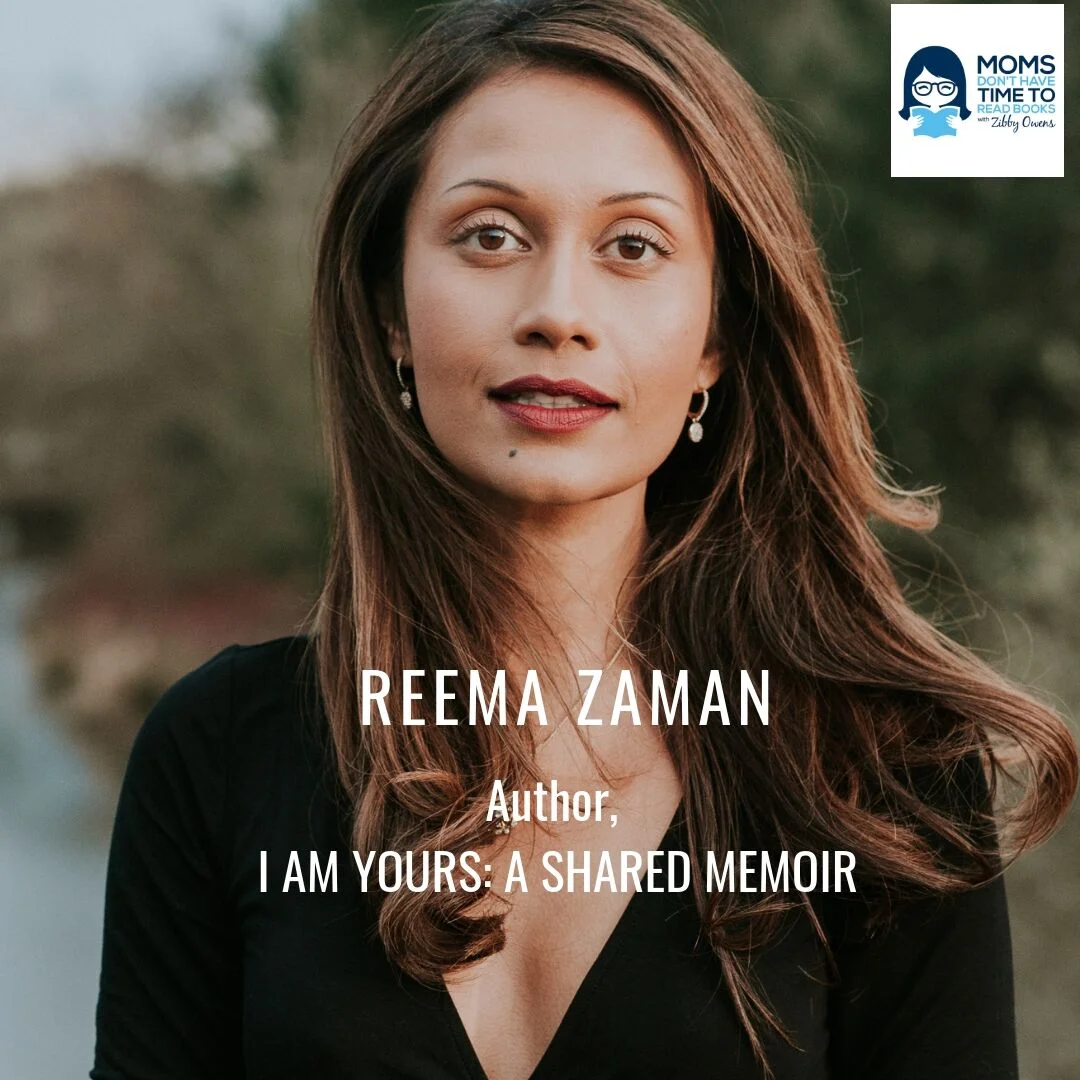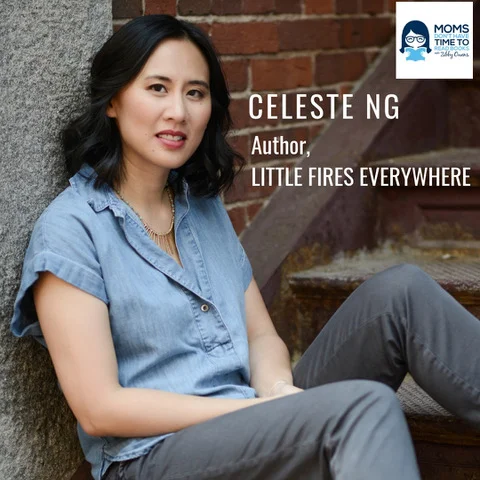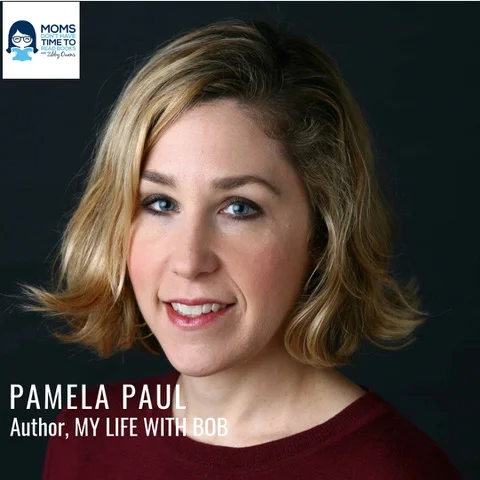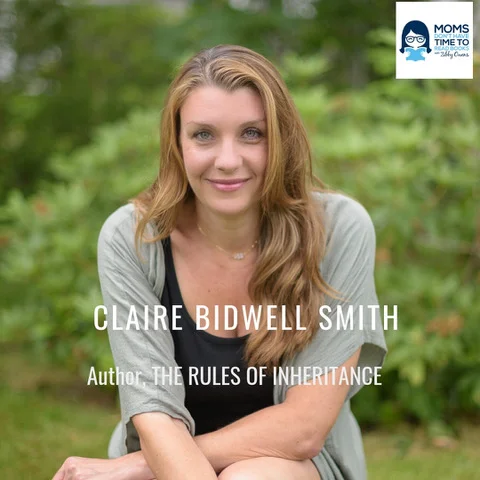Reema: That's one of my favorite scenes. When you're a memoirist, you're bound to the truth, meaning you can't fabricate any scene. Strangely enough, my life has that experience of being, not directly ordered, but certainly given the cue that I need to hold my breath. To say that I spent many years holding my breath around my father wouldn't be hyperbole or metaphor. My mother and I, we recall that story quite often. It’s one of those scenes that unzips so much. From the time I was a child, I knew that my father’s love was constant. His love was nonnegotiable. However, I did feel that his affection, his attention, and certainly his approval was based on conditions. I felt that even the slightly imperfection was a failure on my part as his daughter, as a person.
Ali Wentworth, GO ASK ALI: Half-Baked Advice (and Free Lemonade)
Virginia Sole-Smith, THE EATING INSTINCT: Food Culture, Body Image, and Guilt in America
Virginia: Writing as much as you can and reading as much as you can are really the cores of how to learn to be a writer. The reading piece of it sometimes gets forgotten. I see a lot of people blogging and putting a lot of content out there. That's great, but you really learn to be a good writer by reading a ton.
Jennifer Robson, THE GOWN: A NOVEL OF THE ROYAL WEDDING
Marisa Bardach Ramel & Sally Bardach, THE GOODBYE DIARIES
Marisa: Ever since having children and now especially also with publishing the book, I really do feel her presence more than I have in a very long time and more than I ever thought I would. I do think she knows the book is coming out. I’m torn between whether she thinks, “Of course Missy finished this book because she's so sentimental and family-oriented. We were so close that of course she had to, in a way,” -- she was very sarcastic and funny. I also hear her saying, “Missy, seriously? You worked on this book for twenty years? You wrote this book and you're getting it published? Seriously?” I can't tell which. She definitely knows. I'm not sure yet what exactly she's saying about it. Maybe both.
Claire Gibson, BEYOND THE POINT
Claire: We’re all constantly fighting the chaos that just comes into life naturally. My house, every day, I clean it. At the end of the day, it is a mess. You can let it be a mess or you just constantly work at keeping the chaos at bay. That's part of our human experience is learning how to make the most of the space that we have, whether that's creatively as a novelist trying to make things work, or in the military, constantly fighting against enemies that would like to make our country less safe, or in the case of that character, shaving every day just to keep your performance and your face looking professional.
Kate Hope Day, IF, THEN
Kate: I have an idea for my third book in my mind. The way it’s worked for me is characters take up residence in my mind for about six months to a year before I ever write a word. If they stick around that long, then I know that has to be the book. My retelling of Jane Eyre was like that. I didn't let myself write anything because I was going to finish If, Then.
Cathy Guisewite, FIFTY THINGS THAT AREN'T MY FAULT
Cathy: There's an essay called “My Meaningless Midlife Six-Minute Fling.” I write about the experience I've had, sadly way more than one time, where I'm in the grocery store and realize that the single-serving snack bag that I picked up and ate while I was shopping, intending of course to pay for it but I ate it during the course of the shopping, realizing that it didn't contain one serving. It contained six servings and realizing that in my first few minutes of shopping, I've now eaten more calories than I'm supposed to eat in an entire day just because I didn't squint harder enough at the label.
Steven Rowley, THE EDITOR
Jamie Brenner, DRAWING HOME
Celeste Ng, LITTLE FIRES EVERYWHERE
Celeste Ng, LITTLE FIRES EVERYWHERE
Celeste: It’s interesting because I always think what do people who aren’t writers, how do they process all the things that happens in their lives? When they watch other people or they watch their family members or friends, they're like, you're doing something really different from what I’m doing. How do they make sense of that? For me, it’s on the page. I always wonder how people who aren’t writers, and I guess aren’t therapists, deal with that.
Helen Ellis, SOUTHERN LADY CODE
Pamela Paul, NY Times Book Review Editor, MY LIFE WITH BOB
Claire Bidwell Smith, THE RULES OF INHERITANCE
Chris Van Dusen, IF I BUILT A CAR, THE CIRCUS SHIP
Nell Freudenberger, LOST AND WANTED
Nell: When someone dies and you realize that there was this time that you had that you could've -- at this point, we’ve all lost a friend in a more permanent way. You realize, “God. There were all those nights. What was I doing when I could've been out with him or her?” It seems incredible at this age when suddenly someone's life is cut short.
Lynda Cohen Loigman, THE WARTIME SISTERS
Lynda: During World War II, of course as we all know with the Rosie the Riveter stuff, so many women worked in the defense plants. I started the researching the armory. I thought I knew what was going to happen. I thought I was going to have this character. I just wanted to know what job she would have. I was going to do a little bit of research. That was going to be it.



















